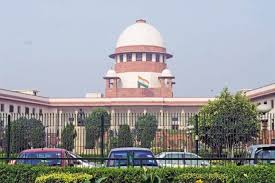The allegation against the appellant is that she accepted a bribe from an independent candidate for casting her vote in his favour. However, as borne out from the open balloting for the Rajya Sabha seat, she did not cast her vote in favour of the alleged bribe giver and instead cast her vote in favour of a candidate belonging to her own party. (Para 2)
The appellant relied on the provisions of Article 194(2) of the Constitution. The High Court by the impugned judgement declined to quash the criminal proceedings on the ground that the appellant had not cast her vote in favour of the alleged bribe giver and thus, is not entitled to the protection under Article 194(2). (Para 3)
The precise question, as the three Judge Bench observed, was dealt with in a judgment of a Bench of five judges in PV Narasimha Rao Vs State (CBI/SPE) [(1998) 4 SCC 626]. Two judges on the Bench, Justice S.C. Agarwal and Justice A.S. Anand, took the view that the immunity granted under Article 105(2) and correspondingly, under Article 194(2) of the Constitution would not extend to cases where bribery for making a speech or voting in a particular manner in the House is alleged. However, the view of the majority was to the contrary. (Para 6)
Accordingly, the matter has been placed, pursuant to the administrative directions of the Chief Justice of India, before this Bench of five judges. (Para 7)
If the construction in support of the immunity under Article 105(2) for a bribe taker were to be accepted: a member would enjoy immunity from prosecution for such a charge, if the member accepts the bribe for speaking or giving their vote in Parliament in a particular manner and in fact speaks or gives a vote in Parliament in that manner. On the other hand, no immunity would attach, and the member of the legislature would be liable to be prosecuted on a charge of bribery, if they accept the bribe for not speaking or for not giving their vote on a matter under consideration before the House but they act to the contrary. (Para 24)
The judgment notes that the offence is complete with the acceptance of the money or on the agreement to accept the money being concluded and is not dependent on the performance of the illegal promise by the receiver. The receiver of the bribe would be treated to have committed the offence even when he fails to perform the bargain underlying the tender and acceptance of the bribe. This aspect bearing on the constituent elements of the offence of a bribe finds elaboration in the judgment of Justice Agarwal but is not dealt with in the judgment of the majority. (Para 24)
We have already noted above that efforts in seeking a review of the judgment in PV Narasmiha Rao and later in proceedings under Article 32 of the Constitution were not successful. One of us (Justice Dr. D.Y. Chandrachud), while delivering a concurrent opinion for a Bench of five judges in Kalpana Mehta Vs Union of India[(2018) 7 SCC 1] (para 221) had occasion to observe that should the correctness of the view in PV Narasmiha Rao fall for reconsideration in an appropriate case, a larger bench may have to consider the issue. The view of the majority has serious ramifications for the polity and the preservation of probity in public life. (Para 25)
For the above reasons, prima facie at this stage, we are of the considered view that the correctness of the view of the majority in PV Narasmiha Rao should be reconsidered by a larger Bench of seven judges. (Para 26)
SUPREME COURT OF INDIA
2023 STPL(Web) 303 SC
[2023 INSC 856]
Sita Soren Vs. Union Of India
Criminal Appeal No 451 of 2019-Decided on 20-9-2023
https://stpllaw.in/wp-content/uploads/2023/10/2023-STPLWeb-303-SC.pdf







